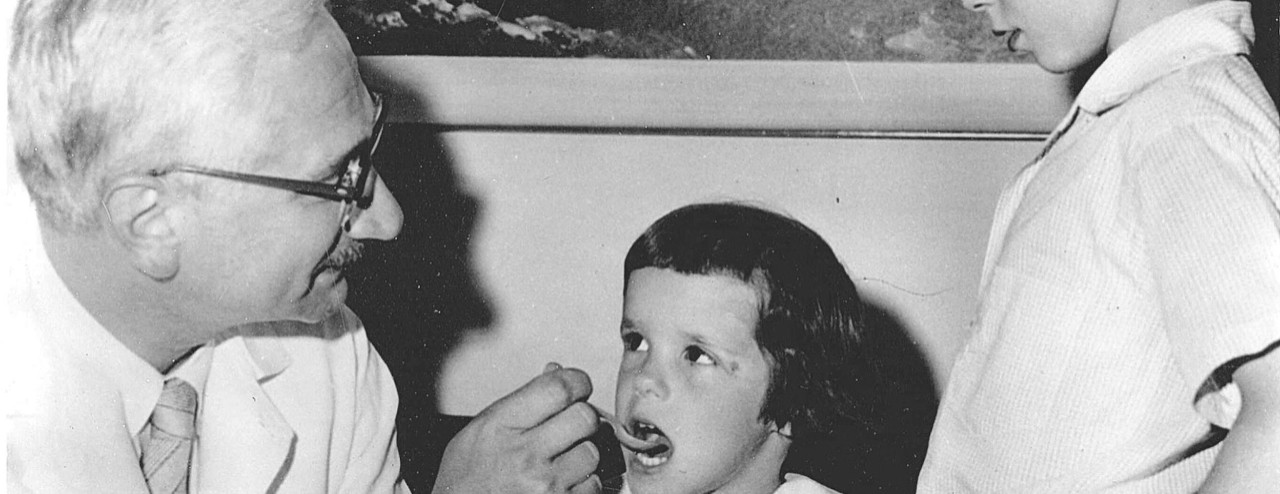
Salon: How a debate over two competing vaccines gripped the medical community — in 1961
Polio vaccine developed by UC's Albert Sabin embraced by world, then U.S. 60 years ago
When a polio epidemic swept across the globe for much of the 20th century, a pair of researchers raced to develop a vaccine to halt the disabling virus that could lead to paralysis.
Salon.com is out with an in-depth feature story about the efforts of Albert Sabin, a University of Cincinnati researcher, and Jonas Salk, a University of Pittsburgh scientist. Both are credited with incredible breakthroughs that ultimately led to eliminating the virus in most of the world. According to the Centers for Disease Control, no cases have originated in the United States since 1979.

Dr. Albert B. Sabin was a pre-eminent medical investigator from the University of Cincinnati and Cincinnati Children's Hospital who dedicated his life to researching the causes and cures of viruses and disease.
According to the Salon article, "the U.S. felt that Salk's vaccine had solved the polio problem and there was no need for another vaccine. So, Sabin turned to other countries for support.
"In the Soviet Union, millions of people participated in a clinical trial. With its success established, the Soviet Union began manufacturing Sabin's vaccine. It is remarkable that at the height of the Cold War an American polio vaccine got its first foothold in the communist world. Eventually, Sabin's vaccine would be approved for use in the United States in 1961 and, in a victory for Sabin, replaced Salk's vaccine in 1962."
Read the complete article
Featured image at top: Albert Sabin, MD, administers the live oral polio vaccine to children.
Impact Lives Here
The University of Cincinnati is leading public urban universities into a new era of innovation and impact. Our faculty, staff and students are saving lives, changing outcomes and bending the future in our city's direction. Next Lives Here.
Follow all of UC's advanced related to the COVID-19 vaccine, or schedule a virtual visit to UC and begin picturing yourself at an institution that inspires incredible breakthroughs.
Related Stories
Ohio could soon make breast cancer screenings more affordable
May 9, 2025
The University of Cincinnati Cancer Center's Ann Brown was featured in Local 12 and Cincinnati Enquirer reports on a bill introduced by Rep. Jean Schmidt in the Ohio legislature that seeks to eliminate out of pocket medical expenses such as copays and deductibles associated with supplemental breast cancer screenings.
Preparing students for artificial intelligence in education
May 8, 2025
Laurah Turner, PhD, associate dean for artificial intelligence and educational informatics at the University of Cincinnati's College of Medicine, recently joined the For The Love of EdTech podcast to discuss the usage of personalized learning and AI coaches to enhance educational experiences.
UC lab-on-a-chip devices take public health into home
May 8, 2025
University of Cincinnati engineers created a new device to help doctors diagnose depression and anxiety. The “lab-on-a-chip” device measures the stress hormone cortisol from a patient’s saliva. Knowing if a patient has elevated stress hormones can provide useful diagnostic information even if patients do not report feelings of anxiety, stress or depression in a standard mental health questionnaire.
